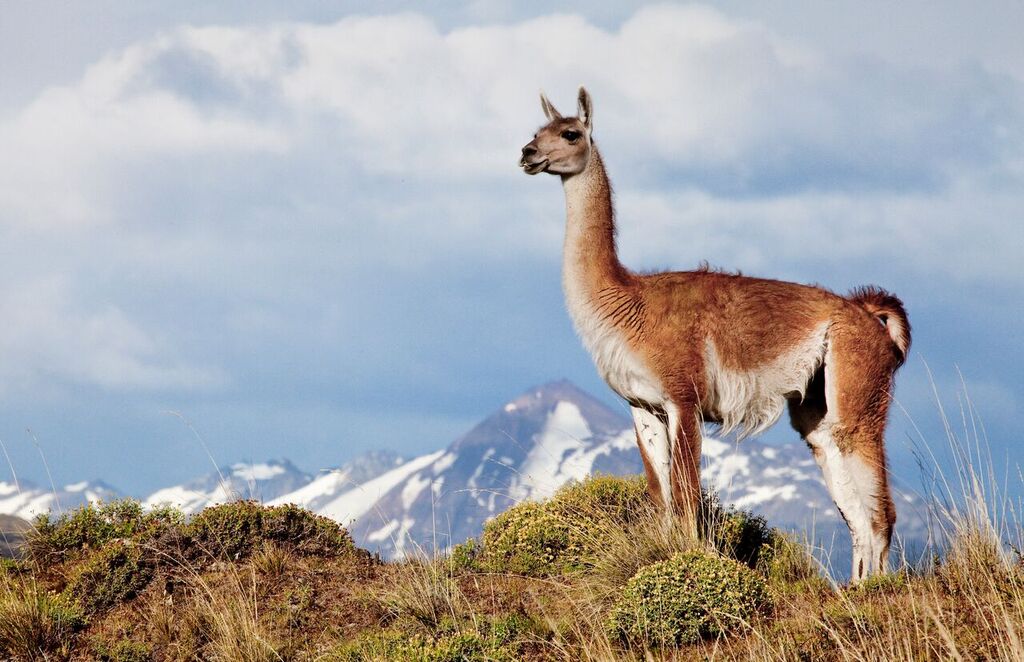Kris Tompkins is a former CEO of Patagonia and current president of Tompkins Conservation. Tom Butler is the author of Wildlands Philanthropy: The Great American Tradition and vice president for conservation advocacy at Tompkins Conservation.
PUERTO VARAS, Chile — “Sustainability” may be a worthy goal, but the word has become cliché, now typically deployed in its adverbial form to modify various nature-exploiting activities like “logging” and “fishing” or the catch-all “development.”
So let’s quit talking about “sustainable” this or that and face the overarching question about the future: Can we create a durable civilization in which humans become good neighbors in the community of life? Where our society is embedded in a matrix of wild nature that allows all creatures — from microorganisms to blue whales — freedom to pursue happiness and raise their progeny in a secure habitat?
The path to that flourishing future for the diversity of life is “rewilding” — helping nature heal by returning missing species and processes to parts of the planet where they’ve been eliminated or diminished by human activity. In a strange and inversely proportional ratio of planetary sickness to public concern, there seems to be less attention paid to the mountains of data that scientists are gathering on Earth’s ecological and climate unraveling. We have, however, seen the power of rewilding projects to capture public imagination and gain widespread support.
Recently, Argentine President Mauricio Macri and his family spent a weekend with the rewilding team from Tompkins Conservation, learning how biologists are reintroducing missing species to their former home in the Iberá marshlands of northern Argentina. After successfully returning giant anteaters, pampas deer, tapirs and green-winged macaws, the rewilding team is now working to breed jaguars in captivity so that their offspring may again roam freely in one of South America’s greatest natural areas.
In his first term, Macri established multiple new protected areas including Iberá National Park; its designation was prompted by the donation of privately assembled land from Tompkins Conservation. Macri has also articulated how expanded parks can help promote ecotourism-related economic vitality and help Argentina meet its commitments to address climate change: wild habitat equals natural carbon sequestered in soil and vegetation.
Similarly, on the other side of the Andes Mountains, Chilean President Michelle Bachelet is creating new marine and terrestrial protected areas. Several weeks ago, before leaving office, Bachelet stood in front of a herd of wild guanacos grazing in the Chacabuco Valley and signed a decree creating the new Patagonia National Park. This act was part of her administration’s agreement to accept a land donation of 1 million acres from Tompkins Conservation along with all of the public-use infrastructure built for two new flagship parks.
That gift leveraged a 9:1 match of government land. This unprecedented (in scale) public-private collaboration creates five new national parks, expands three others and permanently conserves more than 10 million acres of national parkland. An area almost the size of Switzerland is now protected from bulldozers. Chile’s new “Route of Parks” offers a globally unique scenic journey that stretches nearly 1,500 miles from Puerto Montt in the middle of the country all the way to the Beagle Channel on its southern tip.
As the permanent patrimony of the Chilean people, these parklands will secure an array of values for the future. They hold exceptional beauty and recreation potential, provide a rich wildlife habitat, and are an economic asset for the region that will attract visitors from around the world and generate local vitality — all as a consequence of nature conservation and rewilding.
Beyond these values, the new parks embody the crucial idea that wild places and creatures have a right to exist for their own sake, to flourish in their own way regardless of their usefulness to people. Some of the giant alerce trees in the newly designated Pumalín National Park are more than 3,200 years old. The majestic Andean condors that soar over the new Patagonia National Park have an evolutionary lineage stretching back millions of years. As relative newcomers, we have much to learn from our elders about how to live as good neighbors in the community of life.
This story can be replicated everywhere people are willing to use their time, energy and wealth to advance conservation, at every scale. Every hectare matters, as local and regional conservation projects eventually knit up into an interconnected web of wildness, wrapping the Earth in beautiful ribbons of blue and green. This is the foundation of true sustainability — freedom and habitat for all.
This was produced by The WorldPost, a partnership of the Berggruen Institute and The Washington Post.





